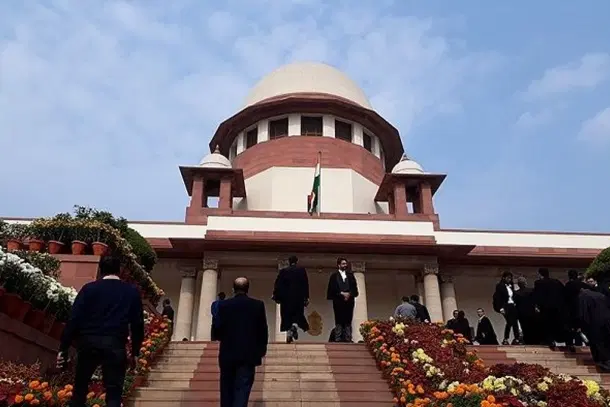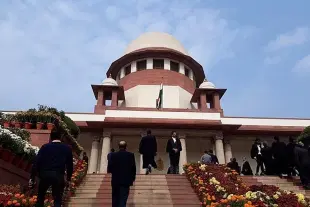News Brief
Governor's Powers Case: Supreme Court Seeks Response From Centre And States On Presidential Reference
Arjun Brij
Jul 22, 2025, 02:28 PM | Updated 02:28 PM IST
Save & read from anywhere!
Bookmark stories for easy access on any device or the Swarajya app.


The Supreme Court on Monday (22 July) issued notice to the Union Government and all state Governments on a Presidential Reference made by President Droupadi Murmu concerning the extent of powers held by Governors and the President under Articles 200 and 201 of the Constitution.
LiveLaw reported that a Constitution Bench led by Chief Justice of India BR Gavai, along with Justices Surya Kant, Vikram Nath, PS Narasimha, and AS Chandurkar, took up the matter and scheduled further hearings for next Tuesday. CJI Gavai said the Bench aimed to commence substantial arguments in August.
The Attorney General for India, R Venkataramani, has been requested to assist the Court, while Solicitor General Tushar Mehta, appearing for the Union, waived formal notice.
Senior advocates representing States including Kerala and Tamil Nadu indicated they would contest the maintainability of the Reference. Senior Advocate P Wilson argued that the issues raised had already been addressed in the Tamil Nadu Governor’s case.
That landmark judgment, delivered by Justices JB Pardiwala and R Mahadevan, held that Governors must decide on pending Bills within three months and cannot indefinitely delay assent.
The ruling also imposed a similar timeline on the President where Bills are reserved for presidential assent. The Court further ruled that State Governments could seek a writ of mandamus if these constitutional timelines were breached.
One of the key questions now before the Constitution Bench is whether the judiciary can fix timelines for constitutional authorities. The outcome is expected to have wide-ranging implications for Centre-State dynamics and the role of Governors in legislative processes.
Arjun Brij is an Editorial Associate at Swarajya. He tweets at @arjun_brij





